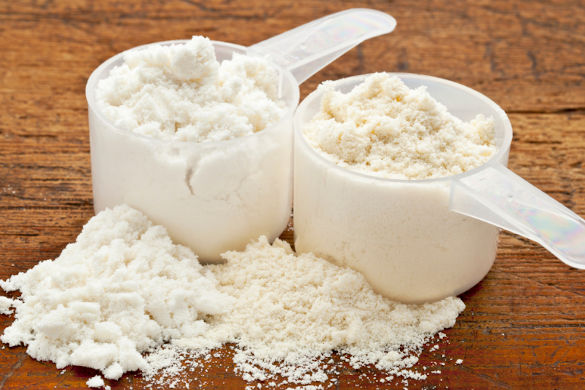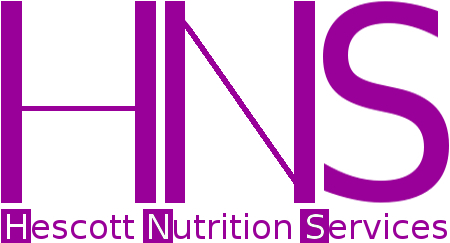.
Welcome to my blog!
.
Everyday Health: How Much Protein Powder Do You Need?
By Hescott Nutrition Services | posted in February 2024 | Protein Powder, Protein Needs, Protein in Foods, Choosing The Right Protein Powders, Complete Protein, Incomplete Protein.
Protein is essential for everyone, but what about protein powder? Often associated with athletes, protein powders are commonly viewed as nutritional supplements targeted towards this demographic. While it's understandable, given that many protein powder brands market their products to athletes, the importance of protein extends beyond just athletic performance. Everyone requires a minimum daily protein intake for optimal health regardless of activity level.
According to Harvard Health, cravings are characterized as "a strong and immediate desire to consume a particular food." Unlike hunger, which can be satisfied by consuming any type of food, cravings are highly specific, often honing in on a single food item, such as the ever-popular craving for chocolate. Furthermore, cravings have the tendency to strike unexpectedly; they can materialize even when we've recently enjoyed a satisfying dinner and have no genuine hunger.

In this blog post, we will explore the fundamentals of protein, including how to determine your protein requirements. Once you understand your individual needs, you can explore the protein content of various foods and evaluate whether protein powder may benefit you. Additionally, we'll discuss how to navigate the diverse range of protein powders available to find the most suitable option for your needs.
What is protein?
Protein is an essential nutrient that everyone requires daily. Classified as a macronutrient alongside carbohydrates and fats, it comprises much of our daily dietary requirements compared to micronutrients such as vitamins and minerals.
Proteins comprise building blocks known as amino acids, with over twenty types identified. Nine of these amino acids are deemed essential, meaning they must be obtained through dietary sources since the body does not store excess protein or amino acids. Hence, a consistent supply is necessary. Protein sources containing all nine essential amino acids are termed complete proteins, while those lacking in one or two are called incomplete proteins.
Protein is vital for overall well-being, with the human body comprising over 10,000 distinct proteins. It is crucial in various bodily functions, impacting muscles, bones, skin, hair, enzymes, blood, hormones, and more. Among its myriad functions, protein aids in promoting bone and muscle mass, facilitating wound healing, and fortifying the immune system. Research suggests that maintaining adequate protein intake may contribute to prolonged satiety and may assist in weight management.
How much protein do you need every day?
The Recommended Dietary Allowance (RDA) for protein is set at 0.8 grams per kilogram of body weight or 0.36 grams per pound. This value represents the minimum amount of protein required to fulfill your basic nutritional needs. For example, a person weighing 70 kg (154 lb) should consume 56 grams of protein daily, while someone weighing 90 kg (198 lb) requires 72 grams of protein per day.
These minimum requirements are enough for most individuals, though some may require more. Specifically, individuals with End Stage Kidney Disease(ESKD) or those facing challenges in gaining or maintaining weight, such as older adults or individuals with HIV/AIDS, may find additional protein beneficial.
For individuals engaging in physical activity, an increased intake of nutrients, including protein, is necessary to sustain energy levels and support recovery. Studies indicate that consuming high-quality protein within two hours post-exercise can promote muscle repair and growth. Athletes should target a daily protein intake ranging from 1.2 to 2.0 grams per kilogram of body weight. For instance, a 70 kg (154 lb) athlete should aim for 84 to 140 grams of protein daily, while a 90 kg (198 lb) athlete should consume 108 to 180 grams of protein daily.
How much protein is in food?

When contemplating protein-rich foods, the typical options that come to mind are often meat, eggs, seafood, and dairy. Undoubtedly, these are some of the primary sources of protein. However, it's worth noting that protein is also plentiful in various plant-based foods, including legumes, nuts, seeds, and grains. Furthermore, vegetables and fruits also provide a significant amount of protein, making them valuable additions to your diet.
Here is a list of the amount of protein per serving in a few higher-protein foods:
- 33 g protein in 4 oz of sirloin steak
- 30 g protein in 4 oz of grilled sockeye salmon
- 28 g protein in 4 oz skinless chicken thigh
- 22 g protein in 4 oz ham
- 18 g protein in 1 cup of cooked lentils
- 8 g protein in 8 oz milk
- 6 g protein in 1 oz of dry roasted almonds
Animal protein sources are considered complete proteins because they contain all nine essential amino acids. Some plant-based proteins, like soy, quinoa, and chia seeds, are also regarded as complete. However, to get complete protein from other plant sources that may lack one or more amino acids, simply mix up your diet by eating a variety of plant foods daily to get enough of your essential amino acids.
Another advantage of consuming more plant-based foods is their positive impact on both your health and the planet's health. Plants are rich in essential nutrients such as fiber and are naturally cholesterol-free. Moreover, producing plant-based foods emits fewer greenhouse gases, making it environmentally sustainable.
Not everyone obtains an adequate amount of protein from their diet. Individuals facing food insecurity, dietary restrictions, or malnutrition frequently fall short of their protein needs. Conversely, some may consume excessive protein, mainly if their diet is high in animal-based foods. While many individuals can meet their protein requirements by consuming a diverse array of nutritious foods throughout the day, supplementation may benefit those unable to obtain sufficient protein from their diet, as with any essential nutrient.
Choosing the right protein powder for you
Protein powders are convenient protein sources, often fortified with additional vitamins, minerals, sweeteners, and other ingredients. Various protein powders may derive protein from multiple sources, with the protein content per scoop differing among products.
In the U.S., nutritional supplements, including protein powders, are not subject to regulation. Certain protein powders have been discovered to contain contaminants such as heavy metals. Therefore, it is crucial to carefully scrutinize the nutrition labels and seek recommendations from a trusted healthcare professional before altering your supplementation regimen to ensure you select a high-quality product.
Here is a brief overview of some of the most common types of protein powders:
Try non-food-related rewards
Whey and casein, derived from milk, should be avoided by individuals with dairy allergies or sensitivities or those abstaining from dairy products. These animal-based proteins provide all the essential amino acids required by the body. However, they differ in their solubility, with whey being water-soluble and absorbed more rapidly than casein.
Collagen protein powder

Collagen, the most abundant protein naturally occurring in your body, is vital for the structural integrity of bones, skin, muscles, tendons, and cartilage. Supplements containing collagen, including protein powders, are derived from animal sources.
Soy protein powder
Soy is among the plant-based foods rich in protein, offering all essential amino acids, making it a complete protein source. Soy-based protein powders are a preferred option for those who avoid dairy.
Pea protein powder
Pea protein powders offer a suitable alternative for individuals steering clear of dairy and soy. Pea protein is abundant in eight essential amino acids, with lower quantities of only one amino acid, methionine. Combining pea protein with rice or animal-based proteins can provide a complete protein source.
Hemp protein powder
Hemp protein is low in two essential amino acids, lysine and leucine, yet it does contain essential omega-3 fatty acids.
Conclusion
Protein plays a vital role in fostering a nutritious, healthful diet. Ensuring that you meet your protein requirements is crucial for maintaining good health. It's important to note that protein is present in a wide variety of foods, not just animal-based options, and many individuals can meet their protein needs through their regular diet without supplementation.
However, some individuals, such as those with end-stage kidney disease (ESKD), may require higher protein intake than others. If you believe you may benefit from a professional nutrition assessment or are considering initiating or altering your supplementation regimen, I recommend consulting a registered dietitian nutritionist. They possess the expertise to provide personalized guidance and support tailored to your dietary needs and health goals.
Looking for higher-protein recipes or meal plans? Do you want to ensure you're getting enough protein to meet your health goals? Go to to book an appointment, or call 347-915-3738.
